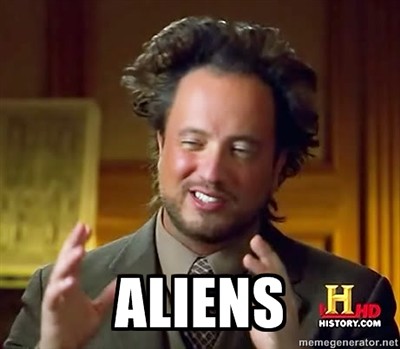"The essential minimum for a city is four to five men, except actually it's a whole bunch more, because we need to trade and make war. Because this ideal city is still going to have war."
 | |||||
| "You're so right, Socrates!" |
"And we're going to have to tell our children stories, so they can get educated. But, the stories we have right now can teach them bad things, so we're going to have to censor the ever living daylights out of them. We're throwing out three fifths of the Iliad, because we can't let any young minds be warped by seeing Achilles misbehaving. Censorship is awesome for this ideal city."
 | ||||
| "No one will ever doubt your wisdom, Socrates." |
"And it would be aweful if sick people just laid around being sick, or, gods forbidding, procreated. That's just prolonging their worthless miserable lives. So we're just going to leave sick people to die. This ideal city embraces eugenics."
 | |||||||
| "Please give me your babies Socrates." |
"And as for wives, well, friends share everything in common. In this city, women won't just be one persons property, they'll be everyone's property."
 | |||
| "You are a beautiful person, Socrates." |
"And we need to make sure people don't go laughing too much. Too much laughter and the next thing you know your children will be running around playing lawless games. Everything in moderation. "
 |
| "Seriously Socrates, please let me have your babies. Please." |
"And justice? Well, in this ideal city, justice is doing your own work and minding your own business. If the leaders decided you would be a good farmer when you were eight, that's what you're going to be. Forever."
 |
| "Those 500 Athenians are gonna be super sorry they didn't give you the lead in the spring musical, Socrates." |
"Injustice, on the other hand, is meddling. When people want to do anything besides what's been decided for them, that's just a big piece of injustice."
 |
| "We love you Socrates!" |






 MJ was out flying with Peter Pan above Neverland. It was the perfect time of day, the sun was warm against their backs, and the clouds were fluffy little puffs of aerated happiness for them to bounce on.
MJ was out flying with Peter Pan above Neverland. It was the perfect time of day, the sun was warm against their backs, and the clouds were fluffy little puffs of aerated happiness for them to bounce on. Peter laughed. MJ was very aware this meant he did not understand what 'subjective' meant. All the same, he took her by the hands again and spun her around and around in the clouds, while the sunshine shone down on them and the warm, happy presently-a-utopia Neverland sat below them, waiting to be explored.
Peter laughed. MJ was very aware this meant he did not understand what 'subjective' meant. All the same, he took her by the hands again and spun her around and around in the clouds, while the sunshine shone down on them and the warm, happy presently-a-utopia Neverland sat below them, waiting to be explored.